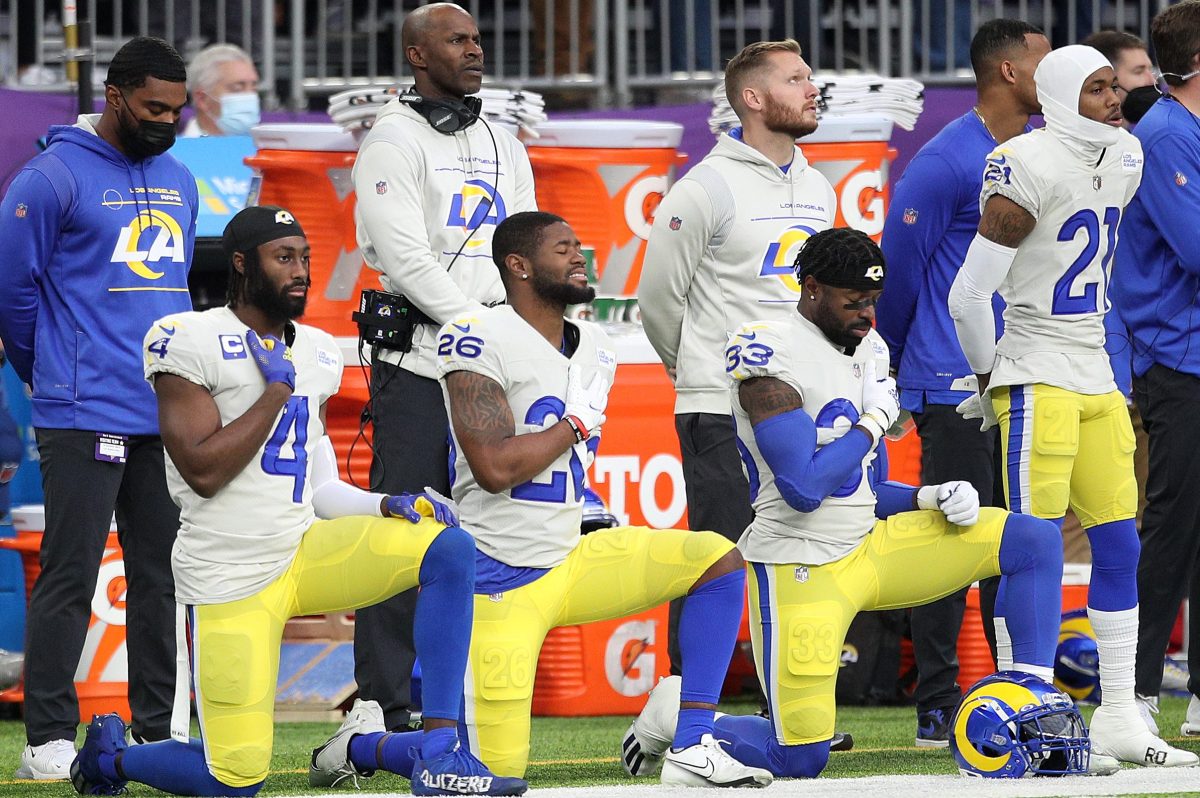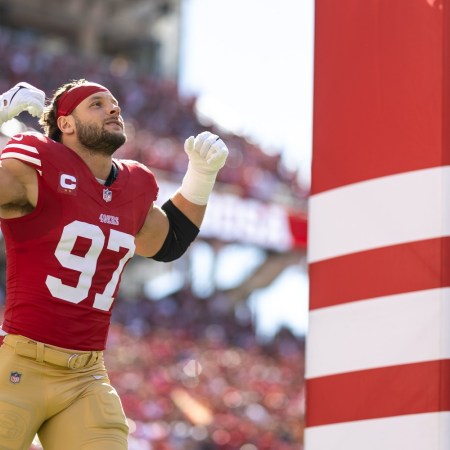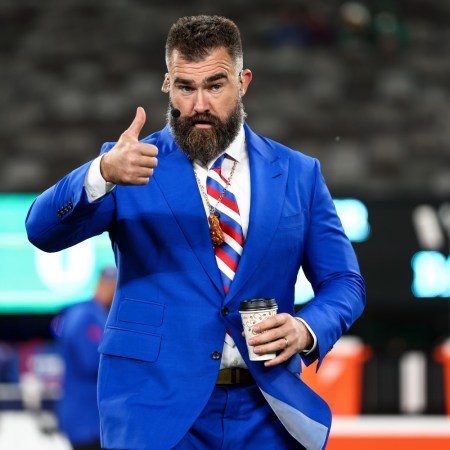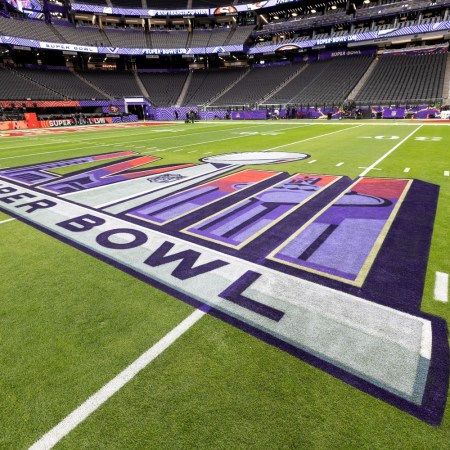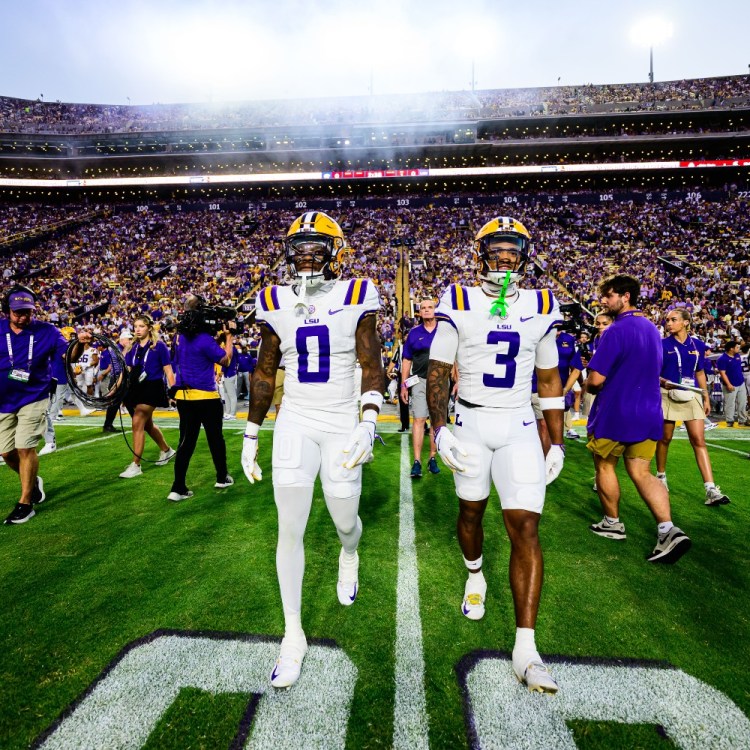Following the firing of David Culley as the head coach of the Texans after one season just days after the Miami Dolphins let go of third-year coach Brian Flores, only one of the NFL’s 32 teams had a Black head coach — Mike Tomlin of the Pittsburgh Steelers — heading into the league’s Super Wild Card Weekend.
“There is a double standard,” NFL executive VP of football operations Troy Vincent told The Washington Post about the way Black coaches are treated in the NFL. “I don’t think that that is something that we should shy away from.”
It also, sadly, isn’t anything new in a league in which the majority of the players are young and Black and ownership is overwhelmingly old and white. However, despite the prevalence of what essentially amounts to institutionalized racism in the NFL (and most major American sports leagues), it is often ignored or swept under the rug unless attention is explicitly drawn to it via a powerful highlight, as has been the case with the pre-game demonstrations of resistance popularized by Colin Kaepernick.
Kaepernick’s protests, which have made racial politics in the sports world a topic of constant, mainstream interest, were what finally convinced longtime sportswriter John Feinstein to begin work on the book that would ultimately become Raise a Fist, Take a Knee: Race and the Illusion of Progress in Modern Sports.
“I had it in the back of my mind for years and years because of my experiences as a sportswriter and a person, but what really focused me to do the book were the anthem protests. There was all the outrage over Kaepernick and then he got blackballed,” Feinstein tells InsideHook. “If you meet anybody who doesn’t think he was blackballed, tell them I have some oceanfront land in Oklahoma I’d like to sell them. It was stunning to hear thousands of white people booing Black athletes for peaceful protests. I was at a game in Baltimore where the Ravens decided as a group, Black and white, to kneel together before the anthem began and then stand with their hands locked during the anthem. They didn’t kneel. They were standing. And the entire stadium booed them. My thought at the time was, ‘We’ve never been more polarized racially than we are right now.’”
And as much as no one likes to admit it, American pro sports continue to perpetuate racial inequality in ways that are much less overt than fans booing protesting players.
“Sports is a meritocracy when it comes to who plays. Everybody wants the best players on the field: Black, white, green, yellow, whatever. But when it comes to management and positions of authority, all you have to do is look at the numbers,” Feinstein says. “I mean, 75% of the NFL is Black and there are [were] three Black coaches. There’s this stuff about Robert Saleh being a minority because he’s Muslim or Ron Rivera being a minority because his dad was Puerto Rican … There are [were] three Black coaches out of 32. That’s the bottom line.”
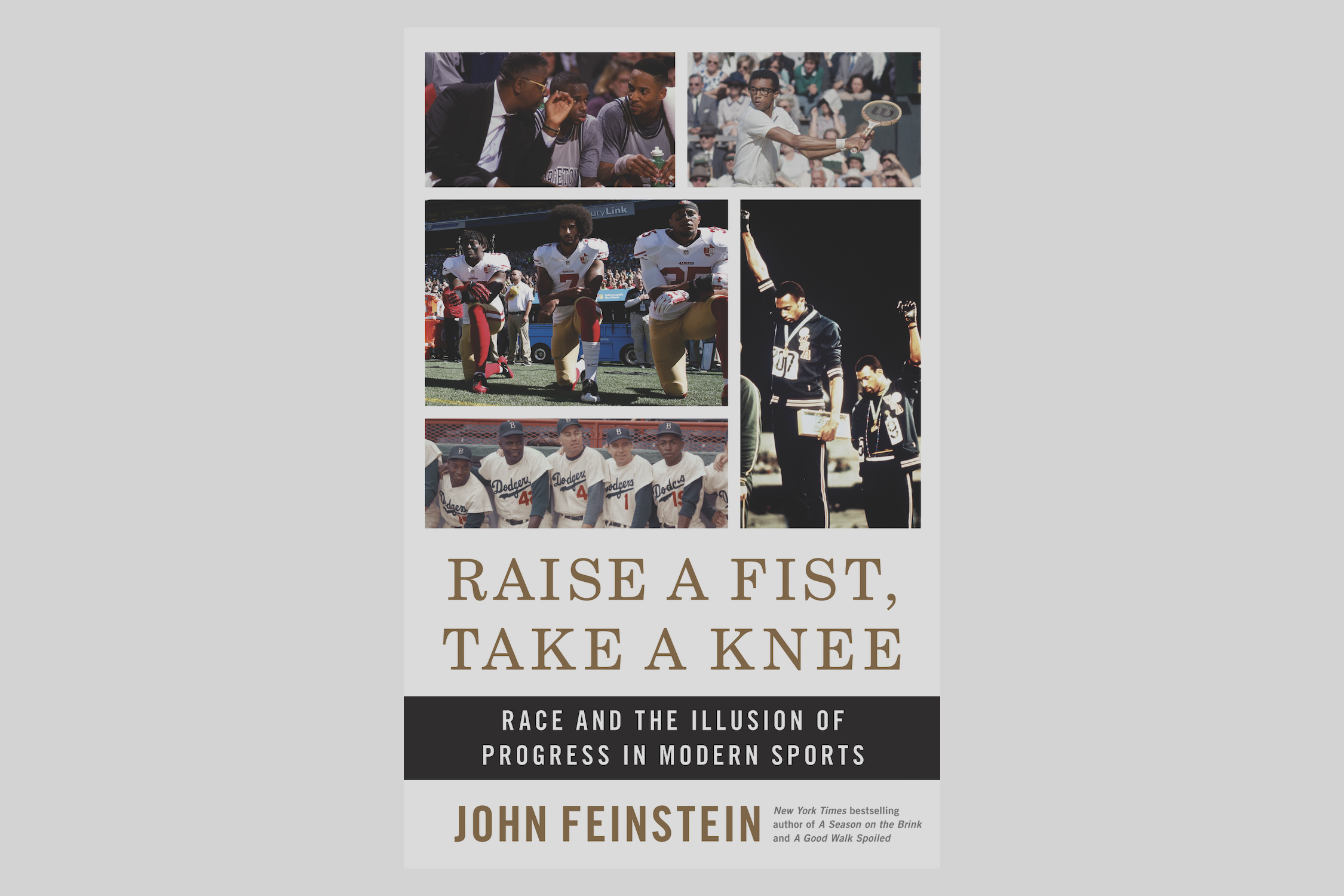
While things have gotten better on the field for Black players competing for positions of prominence like starting quarterback, the sentiment that things have a long, long way to go is a credible one.
“Marlin Briscoe started five games for the Broncos in 1968. That was it for Black quarterbacks in professional football at that point,” Feinstein said. “He said, ‘They’re not going to let me play quarterback. I’m not going to waste my time.’ So he changed positions and ended up being a Hall-of-Fame receiver. Now it’s more than 50 years later and things have gotten better. Five or six of the best quarterbacks in the NFL right now are Black. But after he told me that story, he said, ‘I still feel like if you’re Black, you have to be twice as good to be a quarterback, to be a coach, to be a general manager or to be a CEO.’ If you look at the numbers, that’s true. I mean, how many backup quarterbacks are Black? I don’t know the actual number, but it’s not very many. It’s a white position, basically.”
So why are white Americans so uncomfortable recognizing or acknowledging that dynamic, let alone attempting to fix it? That’s a question Feinstein asked legendary Georgetown hoops coach John Thompson while he was working on the book, one of dozens of interviews he conducted for Raise a Fist, Take a Knee.
“I went to see John, who I had come to look to as a mentor, and said, ‘I want to do a book on race and sports.I know it’s a huge topic,’” Feinstein says. “He looked at me and he said, ‘You might as well try to explain the Holy Trinity — which is why you need to do it.’ I think a lot of it is fear of the unknown, which we all fear. That’s why we fear death or getting on an airplane when you have no control over what’s going on in the cockpit. It’s not just related to race, but I think a lot of white people don’t understand the Black experience. They don’t understand why Black people are afraid of the police. I can’t understand what it feels like to wake up in the morning and be Black. But I can tell people through this book, through the eyes of people who are Black, what it feels like to wake up in the morning and be Black. I think a lot of people honestly believe racism is no longer a problem or don’t want to believe that racism is no longer a problem because it’s not their problem. It’s not part of their lives.”
Putting that massive issue on a more general, societal aside, how can racial inequality be fixed in the world of sports?
“I don’t think it’s going to change, honestly, until we get a new generation of owners. The current generation is basically a bunch of old white guys. They’re billionaires, so nobody’s going to tell them what to do,” Feinstein says. “It’s interesting because both [former NFL coach] Tony Dungy and Mike Tomlin told me they honestly believe [NFL commissioner] Roger Goodell would like to see things change, but he doesn’t have the power to tell the owners what to do. We need more owners of color in all sports, not just the NFL. It’s a very slow process. My original premise was we were polarized racially. As I did my reporting, I realized saying we’re polarized racially is like saying the sun will set in the West tonight. It’s just an absolute given. To say there hasn’t been progress is ridiculous. But you can mistake progress for success. As I said at the end, Martin Luther King’s dream still lives, but it has not been realized.”
That sentiment is true in American pro sports — and everywhere else you look in contemporary America.
Whether you’re looking to get into shape, or just get out of a funk, The Charge has got you covered. Sign up for our new wellness newsletter today.
